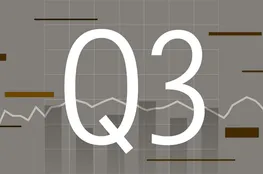Since Donald Trump's election victory, the US stock market has witnessed an upward trajectory, reaching new highs. However, according to Morgan Stanley, there are three potential risks that could disrupt this promising "Trump trade" in the equity markets. The firm advises investors to closely watch developments in bond yields and the US dollar, which could impact the current rally.
First, a significant rise in Treasury bond yields poses a major threat to the current stock market enthusiasm. The initial post-election period already saw a surge in yields, driven by expectations that Trump’s policies will lead to higher inflation and sustained elevated interest rates. For instance, upon Trump's election confirmation, the yield on the 10-year note spiked by 21 basis points to 4.47% on November 6. Although this increase has not yet deterred stock investors, Morgan Stanley warns that further jumps could erode confidence in equities. Concerns about the growing federal deficit could be a catalyst for higher yields, potentially leading to a market cooldown.
Second, the strengthening US dollar may pose challenges, especially for large-cap stocks with significant foreign exposure. Following the election, the Bloomberg dollar index marked its sharpest climb in four years, reaching levels unseen since November 2023. This appreciation of the dollar is underpinned by the belief that Trump's administration will maintain higher interest rates for the foreseeable future. Additionally, apprehension about potential sweeping trade tariffs has led to a decline in various foreign currencies. Should the dollar maintain its current upward trend through the year-end, it could hinder earnings per share (EPS) growth for multinational corporations in the last quarter of 2024 and into 2025, particularly impacting indices where mega-cap stocks with high foreign sales are heavily weighted.
Lastly, there is a growing concern over the valuation of equities, which may be increasingly inflated. In the current climate of bullish sentiment driven by themes like artificial intelligence, the S&P 500 is diverging from its underlying fundamentals. As Morgan Stanley analysts highlighted, the year-over-year change in the S&P index is notably disconnected from the revisions in earnings expectations. This suggests that upward movement in stock multiples might rely heavily on evidence of accelerating growth data. Nevertheless, this should not be seen as an immediate trigger for bearish sentiment. According to Piper Sandler analysts, despite the S&P being overvalued by about 8% last month, a significant bearish factor, such as a sudden interest rate hike or an unexpected rise in inflation, would be necessary to derail the current market optimism.
























